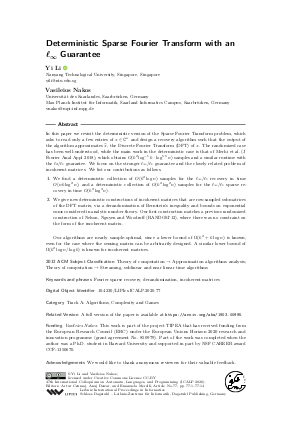LIPIcs.ICALP.2020.77.pdf
- Filesize: 0.52 MB
- 14 pages

 Creative Commons Attribution 3.0 Unported license
Creative Commons Attribution 3.0 Unported license
























































Feedback for Dagstuhl Publishing